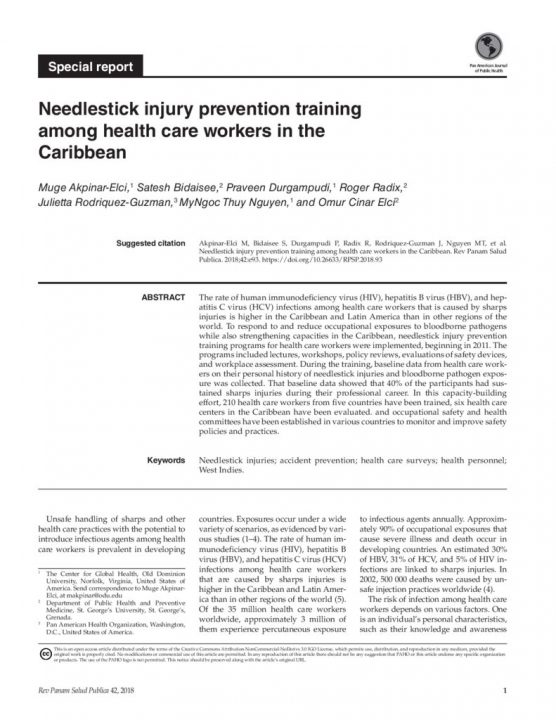
Needle stick injury prevention training among health care workers in the Caribbean
Summary
The rate of human immunodeficiency virus (HIV), hepatitis B virus (HBV), and hepatitis C virus (HCV) infections among healthcare workers that is caused by sharps injuries is higher in the Caribbean and Latin America than in other regions of the world. To respond to and reduce occupational exposures to bloodborne pathogens while also strengthening capacities in the Caribbean, needlestick injury prevention training programs for healthcare workers were implemented, beginning in 2011. The
programs included lectures, workshops, policy reviews, evaluations of safety devices, and workplace assessment. During the training, baseline data from health care workers on their personal history of needlestick injuries and bloodborne pathogen exposure was collected. That baseline data showed that 40% of the participants had sustained sharps injuries during their professional career. In this capacity-building effort, 210 health care workers from five countries have been trained, six health care centers in the Caribbean have been evaluated. and occupational safety and health committees have been established in various countries to monitor and improve safety policies and practices.
